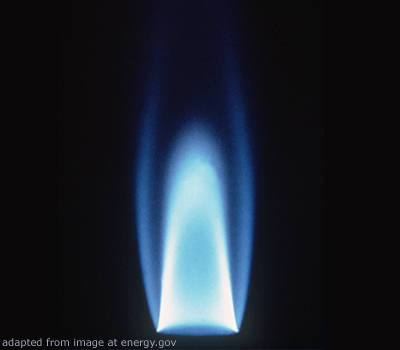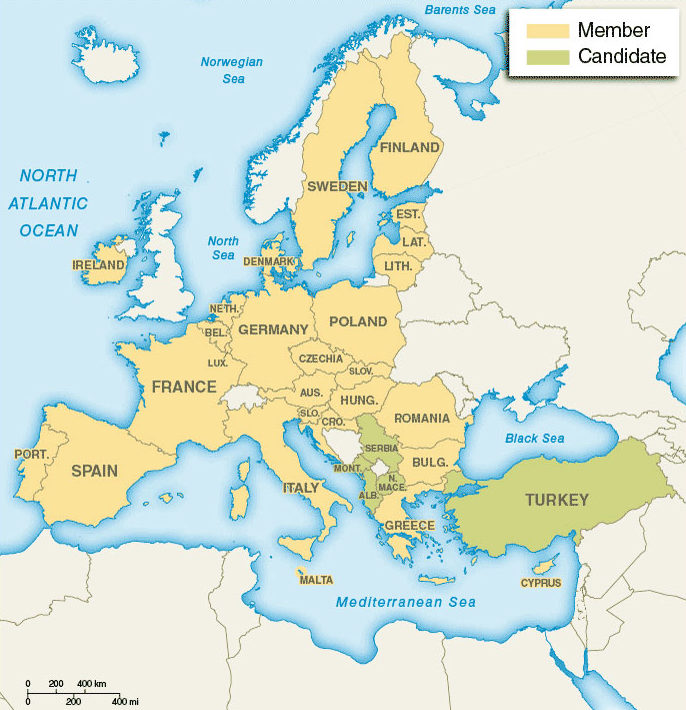Russia’s Energy Influence In Europe Is Growing

(Oilprice.com – Haley Zaremba – Oct. 11, 2021)
- The Nord Stream 2 pipeline is playing a growing role in Russia’s energy influence in Europe.
- As the European energy crunch has intensified, Russia has not increased its supply to meet the region’s demand, in a move that many experts have interpreted as a form of “energy blackmail.”
- Increasing reliance on Moscow is not only a geopolitical danger — the increase of demand for fossil fuels also poses a serious threat to climate goals.
 For years, the United States has stood in strong opposition to the construction and then opening of the Nord Stream 2 pipeline, which runs under the Baltic Sea to directly connect Germany, and thereby the greater European Union (EU) to Russia’s considerable natural gas reserves. While the $11 billion pipeline itself is finished, it has yet to come online thanks to setbacks related to the extremely controversial nature of its construction. Proponents of the pipeline argue that it is essential for Europe’s energy supply, as exemplified by the continent’s current energy crunch. Opponents, with the United States at the helm, argue that not only will the project perpetuate the region’s reliance on world-warming fossil fuels, the pipeline will furthermore greatly compromise the EU’s energy security and dangerously increase the region’s reliance on Russia, giving Moscow enormous geopolitical power.
For years, the United States has stood in strong opposition to the construction and then opening of the Nord Stream 2 pipeline, which runs under the Baltic Sea to directly connect Germany, and thereby the greater European Union (EU) to Russia’s considerable natural gas reserves. While the $11 billion pipeline itself is finished, it has yet to come online thanks to setbacks related to the extremely controversial nature of its construction. Proponents of the pipeline argue that it is essential for Europe’s energy supply, as exemplified by the continent’s current energy crunch. Opponents, with the United States at the helm, argue that not only will the project perpetuate the region’s reliance on world-warming fossil fuels, the pipeline will furthermore greatly compromise the EU’s energy security and dangerously increase the region’s reliance on Russia, giving Moscow enormous geopolitical power.
Opposing the Nord Stream 2 pipeline was one of the rare common grounds shared by both the Obama and Trump administrations, and the Biden administration initially followed suit and announced sanctions against any companies involved in the project’s completion, but then decided to step down and waive those sanctions in May in a reported attempt to improve relations between the United States and Germany. But while the pipeline has now been completed, it has yet to get final approval from Germany to begin operations.
Now, Russia has more bargaining power than ever to get approval for the pipeline and increase their geopolitical reach in Europe. As the European economy has surged back to life after lockdown and people resume life-as-usual post-pandemic, demand for energy has far outstripped supply, leading to a severe energy crunch and subsequent spike in prices across the EU. Regional benchmark energy prices have already skyrocketed to nearly 500% just this year, and will likely only get worse as the Northern Hemisphere heads into the colder winter months when energy demand typically rises significantly.
All of this has almost certainly been music to Moscow’s ears, which already supplied nearly half of the EU’s natural gas supplies and would love nothing more than to monopolize that market. As the European energy crunch has intensified, Moscow has not increased its supply to meet the region’s demand, in a move that many experts have interpreted as a form of “energy blackmail” in order to strong-arm the German government into greenlighting the Nord Stream 2.
Now, in the latest development of the drama between Russia and Europe, Moscow has finally offered to increase its supply of natural gas to the energy-strapped region. On Wednesday Vladimir Putin announced that Russia would help to stabilize energy supply and energy prices across Europe, sending energy prices on a roller coaster ride and leading energy analysts to sound the warning bells that Europe is more vulnerable to Russian influence than ever before.
“Europe has now left itself hostage to Russia over energy supplies,” said in a Wednesday research note from Timothy Ash, emerging markets senior sovereign strategist at Bluebay Asset Management. ″[It’s] crystal clear that Russia has Europe (the EU and U.K.) in an energy headlock, and Europe (and the U.K.) are too weak to call it out and do anything about it,” he wrote, before putting a finer point on it: “Europe is cowering as it fears as it heads into winter Russia will further turn the screws (of energy pipelines off) and allow it to freeze until it gets its way and NS2 is certified.”
Increasing reliance on Moscow is not only a geopolitical danger — the increase of demand for fossil fuels also poses a serious threat to climate goals. Europe hasn’t just turned to Moscow for natural gas, it has also looked into stockpiling coal for the winter. China and India, too, are facing their own energy crunches. China has even experienced rolling blackouts in recent weeks as Beijing struggles to keep up with demand. This has led to skyrocketing coal demand in a time that the world needs to stop burning coal altogether. Ultimately, these energy crunches around the world showcase just how much we are still reliant on fossil fuels to shore up our energy security, and the outsized power that this gives to major energy players such as Russia, creating a dangerous and delicate geopolitical (im)balance.
[article also appeared at oilprice.com/Energy/Natural-Gas/Russias-Energy-Influence-In-Europe-Is-Growing.html]
